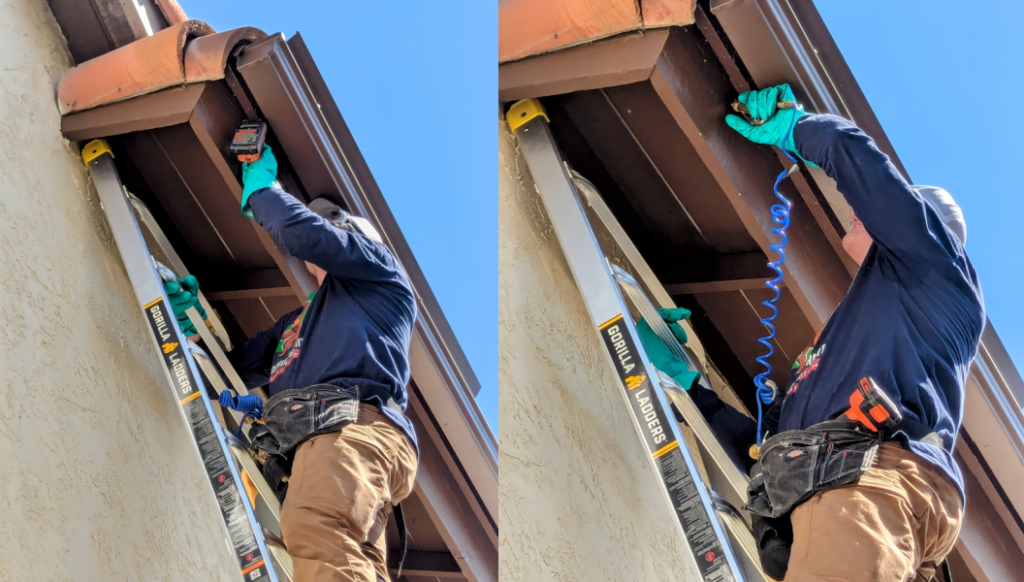License No. PR9657
Local Termite Treatments

Local treatments target specific areas of termite infestation without requiring a full-structure fumigation.
Here’s how they work:
Undetectable to Termites: The chemicals used in local treatments are specially formulated so termites cannot taste or smell them. This is important because it ensures the termites don’t avoid the treated areas.
Transfer Effect: Termites are communal insects, meaning the workers not only consume wood but also feed other members of the colony, including the queen and soldiers. When termites chew on treated wood, they unknowingly ingest the chemical and then transfer it to the rest of the colony through their feeding and grooming activities.
Colony Elimination: This allows the chemical to spread through the colony, affecting even those termites that haven’t directly consumed the treated wood. Over time, this leads to the elimination of the entire colony, including the queen, which is critical for long-term control.
Benefits of Local Treatments:
Stay-at-home solution: Unlike fumigation, there’s no need to vacate your home, making it a convenient option for many homeowners.
Targeted Approach: It specifically treats active infestations, minimizing disruption to unaffected areas.
Follow-up potential: Localized treatments are often paired with inspections and maintenance plans to monitor and prevent future infestations.
Long Lasting Protection: According to the manufacturer, the chemicals we use can stay in the wood for up to ten years.
For more information regarding Local Treatments
Why we don’t use orange oil:
Detectable to Termites: Unlike other chemicals, termites can taste and smell orange oil, which often causes them to avoid treated areas. This avoidance can lead termites to burrow deeper into the wood, making the infestation harder to reach and control.
Short-Lived Effectiveness: Orange oil dissipates within one month, meaning it doesn’t provide long-term protection against termites. This short lifespan can result in recurring infestations and the need for frequent re-treatments.
Flammability: Orange oil shares similar chemical properties with turpentine, making it highly flammable. This poses added risks when used in or around homes, especially near heat sources or electrical wiring. Additionally, it can damage painted surfaces where it is injected.
Safety of Our Chemicals:
You don’t need to worry about the safety of the chemicals we use. All of the treatments we apply fall under the “caution” category—the least toxic signal word for pesticides. Here’s an overview of the three signal words for poison:
- Danger: The most toxic chemicals; even small amounts can be harmful.
- Warning: Moderately toxic; requires more exposure to cause harm.
- Caution: Least toxic; requires significant exposure to pose a risk.
With our treatments, you can feel confident that we prioritize both safety and effectiveness, providing long-lasting protection without the risks associated with less reliable solutions like orange oil.


